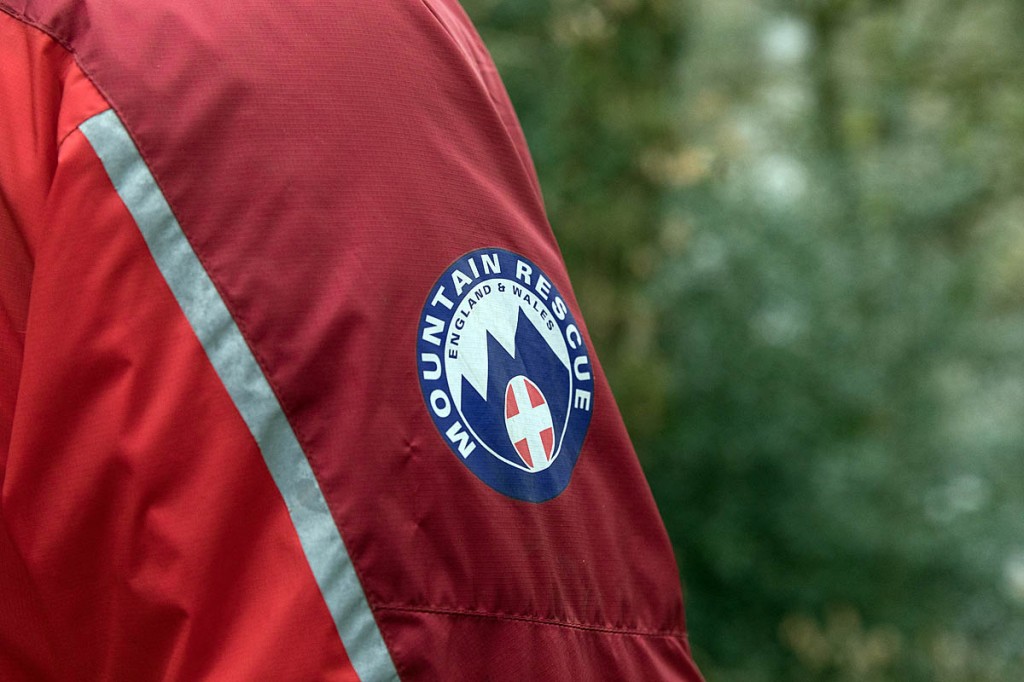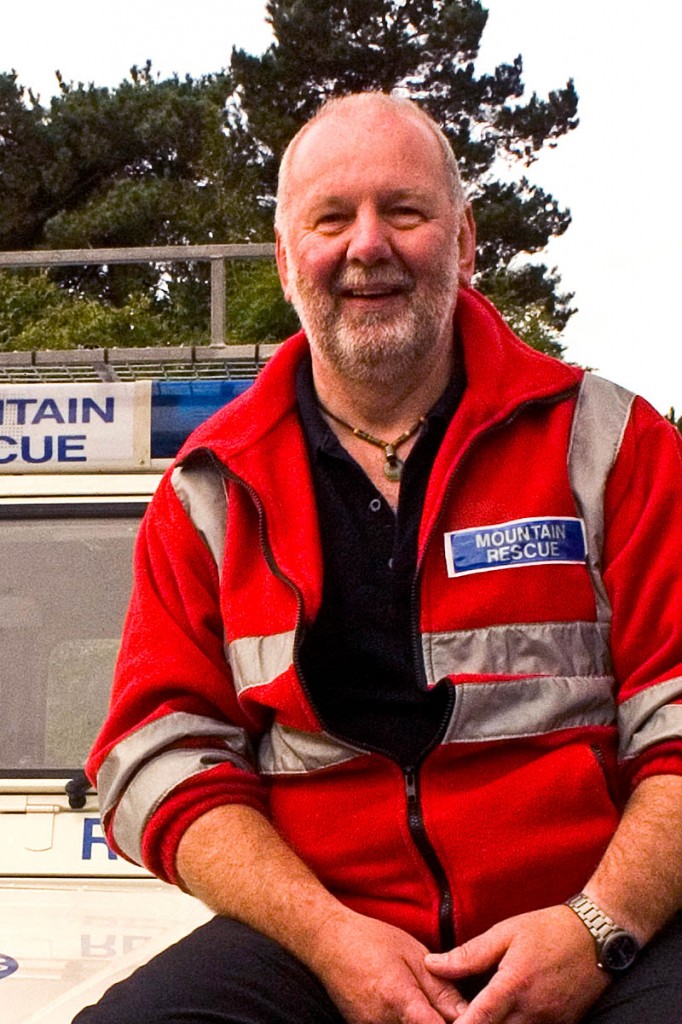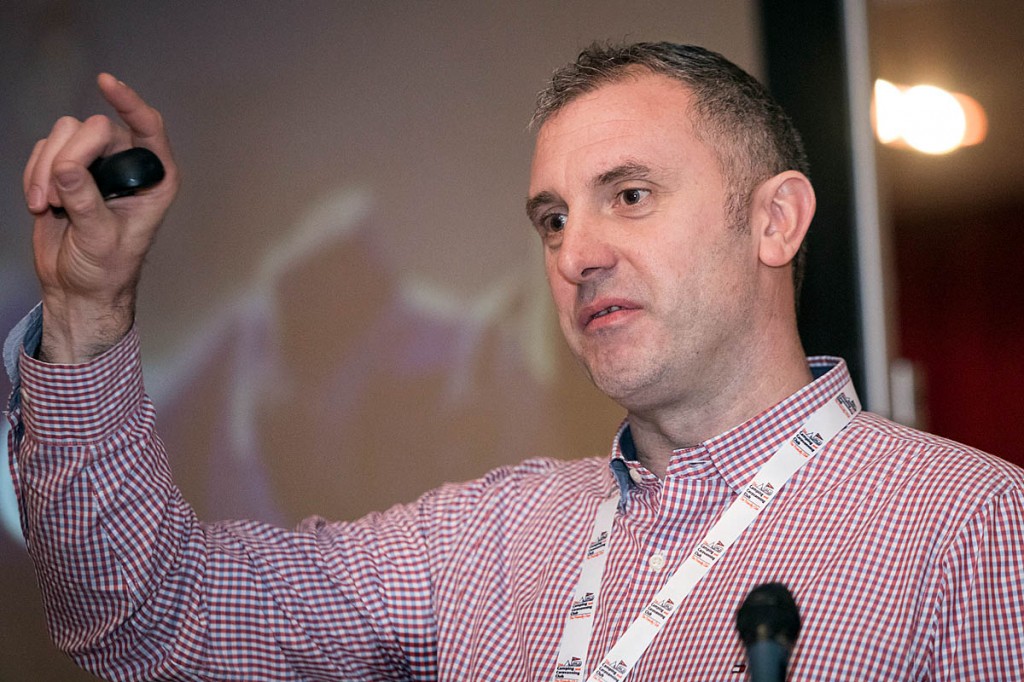A study by Britain’s national mapping agency has revealed many hillgoers are clueless about what to do if things went wrong.
Ordnance Survey said one in eight of people asked would not know how to deal with a mountain emergency if they had no phone signal.
And three-quarters of recreational walkers don’t plan their route properly or pack the right gear, the survey found.
The figures were released as OS announced it was teaming up with Mountain Rescue England and Wales, the umbrella body for voluntary teams south of the border, to try to reduce outdoor incidents.
There were only 14 days last year where a mountain rescue team in England and Wales wasn’t called out.
In 2016 MREW attended 1,812 callouts, up 170 on the previous year, of which 360 were serious or fatal. Mountain bike incidents also continued to rise in 2016, though not at the same rate as previous years.
OS’s survey of more than 2,000 adults from across Great Britain who enjoy recreational walking and hiking highlighted the need for a more safety-minded approach when venturing outdoors.
A total of 83 per cent of those questioned admitted that if they were in trouble on a mountain and had no phone signal they wouldn’t know what to do. It also revealed how more and more walkers and hikers, especially those from younger generations, are not carrying paper maps, compasses or whistles, and are relying entirely on the functionality of their mobile phones, even though only 28 per cent of all respondents would think to check in advance the availability of a mobile phone signal in the place to where they are heading.
Mike France, chairman of Mountain Rescue England and Wales, said: “Each week thousands of people head outdoors in Britain and enjoy their adventures without incident.
“We certainly don’t want to discourage people from doing this, but people need to make sure they have the right kit and have let someone know the route they’re taking if they are heading off the beaten path. This can save lives.”
Mr France said almost 500 of the incidents MREW attended could possibly have been avoided. “We had people contacting us because they were lost, stuck, or suffered a minor slip, some said they were ‘simply unable to continue’.
“These types of incidents place a huge strain on our resources and volunteers, who in 2016 gave up over 80,000 hours of their time helping and rescuing others who have run into difficulties. It’s great to be partnering with Ordnance Survey’s GetOutside initiative and educating people on both the benefits and steps people should take to enjoying the outdoors.”
Paul Cook of Wasdale Mountain Rescue team said: “The big area of growth has been in people phoning up on a mobile from Scafell Pike saying that they are lost and asking if we can help them. It’s vitally important that people who go into the mountains have the right map and compass, and that they know how to use them correctly.”
OS and MREW compiled a checklist for people heading to the hills to ensure they enjoy the experience and don’t become a mountain rescue statistic.
- Plan ahead. Investigate the route thoroughly and take into account your experience and capabilities and the experience and capabilities of anyone joining.
- Check weather conditions. Weather can change dramatically over the course of a walk, especially in hilly areas. Have a contingency plan in mind in case the walk needs to be cut short.
- Practise your navigation skills. Make sure you are confident of interpreting a map and using a compass to navigate. Being able to give the emergency services an accurate grid reference for your location can save valuable time and lives.
- Carry and wear the right kit. For the basics, warm and waterproof clothing – multiple thin layers are always better than one thick jumper, walking boots, a map, compass and navigation skills are essential, as are a decent supply of food and water. If you’re heading into the mountains or for longer walks, you really should be thinking about a survival bag, a torch or head-torch, spare batteries, a whistle, spare clothes, hat and gloves, a first aid kit, spare food and even an ice axe and crampons – but know how to use them properly. Take a good rucksack to carry everything in and that you’re comfortable carrying it.
- Always have a back-up. If you prefer to navigate with a GPS device, do carry a paper map and compass as back-up. The free app OS Locate app will give you an accurate grid reference for your location and does not need a phone signal.
- Let people know where you are. Letting someone know where you are going and when you are likely to return is a good idea. Make sure you notify them when you return and agree a time when they should contact the emergency services if you don’t contact them.
Nick Giles, managing director of Ordnance Survey Leisure, said: “Great Britain is a varied and beautiful country, offering something different each time you head out.
“Mountain rescue do an awesome job in often difficult circumstances, and it is a job we should all be appreciative of. Their figures for last year and our survey findings demonstrate the ongoing importance of keeping safe and being prepared when heading outside.
“While you can never eradicate accidents, we can at least as individuals take more responsibility in the hope preventing incidents. Let’s see if together we can reduce the number of mountain rescue incidents in 2017.”
- grough is a commercial partner of Ordnance Survey in the provision of data for the grough route mapping and route planning service.



Bill Rose.
29 June 2017Ordnance Survey have a great free app. OS locate. No mobile signal required. It gives a 6 figure grid of your location to use with a map and compass if caught in mist. It can send the position to anyone as a text message which may work in poor signal areas insufficient to carry a mobile spoken call. Knowing where you are is the key to being safe. Its a great free aid .
Killin MRT have been promoting this navigation aid for some time and it has located a few lost hillwalkers.
Haydn
29 June 2017Surely the logical progression here is to have a "what to do in an emergency" checklist printed on OS Maps, and included in the "Handy hints and safety tips" section of the OS Locate app? That way at least people have it to hand (assuming they're prepared enough to at least have some form of mapping on them).
Kevin
30 June 2017You could go one better and have an app that you fill in and email or text the information to a responsible person or next of kin.
It is possible to be tracked on your walk via the internet so that could help too
Ian512
30 June 2017Or you could just learn the navigation skills of mountain travel.
stigofthenest
30 June 2017Because if you fall in a gully and knock yourself out having good nacmvigational skills will be handy Ian?
Get off the high horse.
Ian512
01 July 2017stigofthenest
With decent navigation skills you'd probably not fall in the gully.
Mountain Rescue seem to be calling for better hill skills.
AndyB
01 July 2017Not much point printing 'Handy Safety Tips' on OS maps - or an app that gives a 6 figure grid reference if people aren't caryying OS maps.
Jeff Breen
01 July 2017I think we need a prominent sign at the start of the route up scafell from Wasdale warning of the perils of the route. Also a gear checklist that people should be carrying including a map and compass AND the knowledge on how to use them.
And cat among the pidgeons here! If they need rescuing and they do not have the correct gear with them, they are then charged for that rescue. discuss!
madcarew
01 July 2017Mountain Rescue carry maps though......at least they will know where to find you with the OS grid ref app...if you can get a signal from the gully you have fallen down, and the phone is not damaged, and you are not damaged, and the phone is charged in the first place.....haha.
Let's not get too wound up, this has been going on since as long as folks have been going into the hills, some will always be ill prepared in skills and equipment.
Certainly more folks out there these days, easier transport links, more free time, easier access to information on the net, and it is only walking after all.....it is not as if it is some sort of adventure sport!!!!!!!!
I think the issue these days is a cultural trend to a) ignore 'establishment' advice, and b) an expectation that someone will always come and rescue me for free!
The whole outdoor community just need to keep sharing the love.....and promoting good practice.
stigofthenest
01 July 2017https://www.grough.co.uk/magazine/2017/06/29/lakeland-walker-airlifted-to-hospital-after-suffering-head-injuries-in-cat-gill-fall
https://www.grough.co.uk/magazine/2017/06/26/patterdale-rescuers-call-in-air-ambulance-to-help-find-injured-bannerdale-walker
https://www.grough.co.uk/magazine/2017/06/29/lake-district-mountain-biker-dies-after-suffering-cardiac-arrest
The three most recent stories of incidents on the fells.. not sure you're correct in your flippant ascertion that better navigation skills would have been any help to the first two. Seems like theres plenty of tumbles which having a DofE platinum award would be of use..
We can all have incidents regardless of our skill level.
madcarew
01 July 2017Jeff makes the point about charging....ok
Who decides if the victim is qualified and equipped, the courts?
How do you get perhaps tens of thousands of pounds for a multi day search with MRT and Coatguard Helis out of someone who had no assets?.....
Ok......cat amongst pidgeons again, if voluntary MRT's are hard pressed, is it time to make them paid full time in the busy areas, and paid part time in quiet areas, like Fire and Rescue Service.
That will go against two basic tenets of outdoor sport, 1. You are free to enjoy the hills as you please regardless of ability.
2. The volunteer MRT, climbers and walkers rescuing their own
Ian512
01 July 2017Of course, "We can all have incidents regardless of our skill level," there is no doubt about that.
The point being made is that if you head to the hills with few skills and equipment you are more likely to get into trouble.
Wilf from Keswick
02 July 2017Jeff Breen
I think you mean Scafell Pike. Scafell, thankfully, is not the highest and because of that it's generally nice and quiet. In most peoples opinion it's the better of the two fells.
I don't mean to be picky or mean that in a bad way but they are two different fells.
Nigel
03 July 2017Ian normally just tells them to stop in the house
Ian512
04 July 2017Nigel,
Ian usually suggests that people learn the basic skills in lower countryside, closer to home, before tackling the higher hills. This will ease the load on rescue teams.
PldManOfTheHills
04 July 2017I too am appalled at those who set out without maps, compass and headtorch. But I have been lost in sudden fog unable to see landmarks and have had to retreat down the wrong i.e. inconvenient side of the mountain so maps don't prevent all navigational problems.
An apart from people walking over cliffs they thought were not there - Ben Nevis in particular - most actual injuries aren't caused by navigational errors.
People try and descend gullies that are too steep for their skill set or equipment and maps don't tell them that detail. People trip and fall and even die on routes they know perfectly well.
Maps and grid references do help people needing rescue due to being lost and do help the rescuers who then attend but they are not a substitute for hill and mountain skills.
Ian512
05 July 2017The basic skills mentioned above include general "hill and mountain skills" many of which can be developed on lower hills.
Nigel
05 July 2017High hill low hill what's the difference ?
There are plenty smaller hills which require a lot more navigation and are technically and physically more demanding than some of the larger hills , fact is you only get good with experience and getting out in the hills irrespective of size .
Where some of the bigger fells have obvious hazards all hills provide danger in some way shape or form, so development can be done wherever , it's all about taking it in and learning from your mistakes , goes for pretty much everything we do in life really .
Ian512
05 July 2017You are wrong actually - the key is that on 'appropriate' lower ground, not necessarily hills, if a mistake is made while gaining that important experience, a simple walk in any direction will bring you to something identifiable.
(Yes I know, you can have a trip and injure yourself there also, but try thinking about the bigger picture of what I'm saying)
Plenty of Orienteering courses with instruction, held in most parts of the country, can also be used.
You seem to be nonplussed that so many people head to the high hills with little or no experience or equipment, yet 'appear to be happy' that volunteer rescue team members spend many hours out of their normal day looking for them when things go wrong.
To be blunt it is irresponsible for individuals to rely on team members when they have made little or no effort to gain skills and experience themselves.
If they want a Guiding Service there are plenty available to hire.
Nigel
05 July 2017Nah don't think so , take it in and learn from your mistakes it's as simple as that
Ian512
05 July 2017I take it then that you are happy enough for volunteer rescue team members to pick up the pieces, so to speak.
Mr France, Chair Mountain Rescue England, said above "almost 500 of the incidents MRE/W attended could possibly have been avoided."
As said before, we rarely hear of someone heading off over the Irish sea in a sailing dingy without training or experience. Whenever someone tries to do so and has to be rescued there is often a public outcry – but if it happens on the hills, then they are often described as being, just unlucky.
Remember this quote above, "Many hill goers are clueless about what to do if things went wrong." Suggesting a complete lack of preparation, never mind any level of self reliance.
Nigel
05 July 2017I've read the article and fully appreciate what the MRT provide , but I stand by my comment , take it in and learn from your mistakes ,. As with all accidents , the majority of them could have been avoided in hindsight .
Ian512
05 July 2017The problem is that it's foresight not hindsight that's required.
You may well "appreciate what MRT provide", but do you fully understand why and how the service is provided and at what cost to the day to day lives of those volunteers?
grough May 2017 - "Remember, rescue teams, by long standing mountaineering tradition, usually don't criticise those they rescue, which means others may have to say what they can't."
Nigel
05 July 2017It's fantastic that they have you as their voice to tell the rest of us how it is , thank you
OldManOfTheHills
06 July 2017The OS review covered preparedness as well as navigational issues. And incidentally I am pleased to now hear of an app that can translate GPS lat and long grid data to OS grid data, though I've only ever used GPS once in the hills it might come in handy in a fix.
I think we all agree that many of those who walk in the hills should be better prepared both in terms of kit and in their awareness. I will continue to encourage people to explore the hills of their native land - but remind them of the perennial trio of compass, map and headtorch. Footwear, food and clothing is a more complex issue as a summer fell runner or mountain biker will very need different items than a winter mountaineer.
And as ever my appreciation goes out to the MRT teams who rescue fool and the unlucky alike
Nigel
06 July 2017@oldmanofthehills, Exactly right
Margaret
10 July 2017It is always more interesting and enjoyable to read the discussion lines posted in grough without negative personal comments creeping in.
Grough is usually better than some sites, which often tend toward unpleasant personal attacks.
Nigel
10 July 2017Margaret , reading back I think your right
Ian , your comments are sensible , and thought process is well thought out , its probably is better to start lower down and is more than a fair comment . I have my own opinions but they could have been put forward in a better light , it wasn't my intention to offend , sorry my bad .
Lakeland Walker
11 July 2017Lack of skills, appropriate clothing, equipment and appreciation of personal fitness and ability is now commonplace, particularly in the Lake District. I'm an Outdoor Instructor and am regularly on the Lakeland fells. I meet people all of the time who are lost or out of their depth. Some people don't even know which mountain they're on. We all learn from our mistakes, but the mountains can be unforgiving and mistakes can be costly. Its about taking personal responsibility for you and others in your group. One of the most important aspects of heading into the mountains is good decision making; just google 'heuristic traps' to see what I mean. Many accidents and incidents occur because people make poor decisions, which then have a knock-on effect. The more knowledge and skills you have, then the more cautious you tend to be. It's a complex topic!